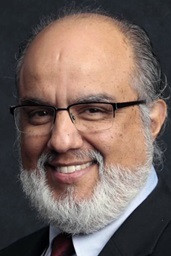A.W. Martin feels General Conference 2012 must ‘make every effort to put the Book of Resolutions into serious play at every level of the church’s life.’
The theme of the 2012 General Conference is “Make Disciples of Jesus Christ to Transform the World.” It summarizes the foundational mission statement of The United Methodist Church.
There is one source in our denomination, besides the Bible, that has the potential and promise of converting United Methodist disciples, new and old, into agents of change who can play a significant role in transforming the world. This is The Book of Resolutions.
The Book of Resolutions is a wide-ranging, at times even inspiring, collection of more than 350 official statements.The Book of Resolutionscontains most current social policies and other, miscellaneous guidelinesadopted by the General Conference, which is the only official voice of The United Methodist Church.
The Resolutions guide the work and ministry of the church on almost 200 subjects presented inmajor categories of the Social Principles —The Natural World, The Nurturing Community, The Social Community, The Economic Community, The Political Community, The World Community—and Other Resolutions.These statements point our denomination in the direction of world transformation.
Congregations that take even a few of these resolutions seriously will make at least a small contribution to changing the world. Two examples graphically illustrate this point: the longest of the “other resolutions” and the longest resolution in the six major divisions.
Related information
“This Holy Mystery,” our official understanding of the Lord’s Supper, was approved in 2004 and is up for renewal at the approaching Conference. It has the power to revitalize a congregation. Wherever possible, worshipers will receive communion weekly, and they will grow in their awareness of “the real, personal, living presence of Jesus Christ.” They will increasingly recognize how “the past, present, and future of the living Christ come together by the power of the Holy Spirit so that we may receive and embody Jesus Christ as God’s saving gift for the whole world.”
Potential of world-changing action
The comprehensive statement on “Globalization and Its Impact on Human Dignity and Human Rights” was approved in 2008 and so will almost certainly continue until at least 2016. It has the capacity to propel congregations into action that could change the world. The actions include actively supporting the United Nations to make it “a responsible and effective global force in peacemaking and human rights” and supporting the Hague Agenda for Peace and Justice in the 21stCentury, the Pillars of Peace for the 21stCentury, the Millennium Development Compact and an International Criminal Court.
A congregation that accepts the resolution on globalization will try to persuade the government of its country to implement a wide variety of conventions, declarations, covenants, and treaties, including the Comprehensive Nuclear Test Ban Treaty and a treaty banning land mines.
Such a congregation also will work for the protection of the rights of women, children, migrant workers, and indigenous persons. It will struggle for “the eradication of poverty and the elimination of hunger, the ending of wars and the resolution of conflicts; and the overcoming of ignorance, curing of diseases, and healing of enmities.”
It will also “foster further cooperation among spiritual, religious, and ecumenical bodies for the protection of religious freedom and belief;” engage in “the search for shared spiritual, social, and ethical principles that engender peace and justice;” and work for “the elimination of ideologies or practices of colonialism and racial discrimination.”
At the moment, however, the Book of Resolutions has only limited influence in our denomination. As of August, 2011, the Publishing House reported sales of 21,300 copies, about 6,000 CD-ROMs, 1,400 online subscriptions and 600 downloads of the Book of Resolutionsand Book of Discipline together.
Take every possible step
General Conference 2012 should, therefore, take every possible step to enhance the influence of the Book of Resolutions. The Conference should:
1. Reject petitions that would limit its use. This includes turning down efforts to virtually eliminate it, restrict the length of proposed resolutions and limit the role of general boards in preparation.
Lesser understanding of Book of Resolutions
- Pastors responding to a recent online survey developed by United Methodist Communications indicated that they have less understanding of the Book of Resolutions than the Book of Discipline and the overall structure of The United Methodist Church. While 84 percent of pastors responded that they “understand well” the organization of the church and 67 percent described their knowledge of the Book of Discipline similarly, only 32 percent believed they understand the Book of Resolutions well.
- When asked about specific areas covered by these documents, the level of understanding dropped precipitously.
- Survey invitations went to 5200 randomly selected pastors and church offices of which 36 percent were opened. Of those emails, United Methodist Communications received 1018 completed surveys. The Western North Carolina Annual Conference also distributed a number of invitations with similar levels of response.
- “We have a consistent pattern with many of our research projects,” said Chuck Niedringhaus, Director of Product Marketing and Research for United Methodist Communications, who worked on the project. “Many of the important, guiding documents of the church, like the Book of Discipline and the Book of Resolutions are not completely understood by its local leaders. Many pastors understand the Book of Discipline as it applies to local church organization, but our research suggests that the level of comprehension falters when the full scope of the document is presented.”
2. Make the Book of Resolutions available free of charge online. An easy way to achieve this would be to amend and approve the petition that would require electronic publication of the Book of Discipline (# 20797). Both works should be easily accessible in at least all of the languages used at General Conference. (Much of the translation work has already been done in preparation for the Conference.)
3. Strengthen the Book of Discipline’s statement about the status of the Book of Resolutions (¶ 510.2). The Disciplinecurrently holds that resolutions “are considered official expressions of The United Methodist Church … ,” thus raising the question “considered by whom?” There should be a straightforward affirmation that the resolutions are official expressions of the church.
4. Require that an index of Scripture passages be included in the Book of Resolutions, thus greatly expanding its possible use in sermons and Bible studies.
Soon after the Conference, the secretary, who is responsible for the publication of the Book of Resolutions, and its editors need also to take steps to make the User’s Guide that introduces it more effective. These include:
1. Reword to emphasize its potentially key role in world transformation.
2. Remove sweeping generalizations about the authority of the Book of Resolutions.Each resolution should be allowed to stand on its own with the force that the General Conference gave it. This can range from merely encouraging actions to directly requiring them.
3. Correct the implication that agreement or disagreement with the Book of Resolutions is a matter of indifference. In light of its capacity to shape world-changing disciples, the Book of Resolutions is of supreme importance.
The Book of Resolutions is a product of The United Methodist Church, belongs to the church, and should be available to the church for the widest possible use. If the approaching General Conference is fully to respect its theme about making disciples for world transformation, it must reject all “penny-wise, pound-foolish” proposals and make every effort to put the Book of Resolutions into serious play at every level of the church’s life.
*A.W. Martin is Professor of Religion Emeritus, Oklahoma City University and a retired elder, Arkansas Annual (regional) Conference, United Methodist Church.
Like what you're reading? Support the ministry of UM News! Your support ensures the latest denominational news, dynamic stories and informative articles will continue to connect our global community. Make a tax-deductible donation at ResourceUMC.org/GiveUMCom.




